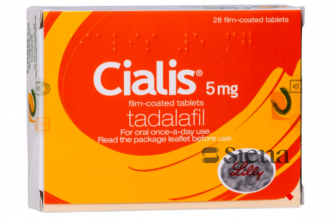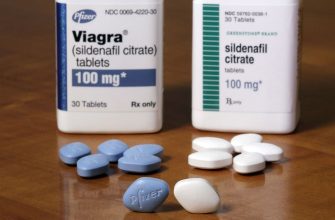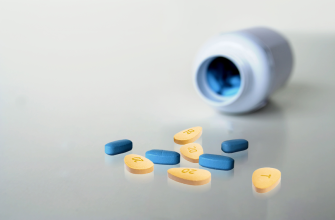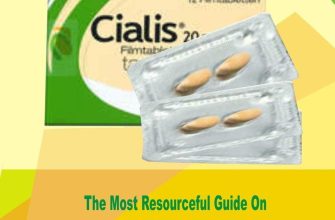If you’re concerned about Cialis and its potential impact on your liver, prioritize open communication with your doctor. Discuss your medical history, including any existing liver conditions, and any medications you’re currently taking. This proactive approach is key to managing potential risks effectively.
Studies suggest a link between Cialis (tadalafil) and rare instances of liver enzyme elevation. While generally mild and reversible upon discontinuation of the drug, elevated liver enzymes can signal liver damage. Factors such as pre-existing liver disease, age, and other medications can influence individual susceptibility. Your doctor can help determine your personal risk profile.
Regular liver function tests, including monitoring of ALT and AST levels, are recommended for individuals taking Cialis, particularly those with pre-existing liver conditions or those experiencing unexplained fatigue, jaundice, or abdominal pain. These tests provide valuable data to track liver health. Prompt reporting of any unusual symptoms to your physician is also crucial for early intervention.
Remember, this information is for educational purposes only and does not replace professional medical advice. Always consult your doctor before starting, stopping, or altering any medication, including Cialis. Your physician can provide personalized guidance based on your specific health situation and medical history. Never self-treat.
- Cialis and Liver Health: Understanding the Risks
- Factors Influencing Liver Risk
- Recognizing Potential Problems
- Recommendations for Safe Use
- Further Information
- Cialis Metabolism and Liver Function: A Detailed Look
- Factors Affecting Metabolism
- Liver Function Tests (LFTs) and Cialis
- Patient Recommendations
- Reported Cases of Cialis-Induced Liver Injury: Severity and Frequency
- Severity of Liver Injury
- Factors Influencing Risk
- Minimizing Liver Risks When Using Cialis: Precautions and Recommendations
Cialis and Liver Health: Understanding the Risks
Tadalafil, the active ingredient in Cialis, is generally well-tolerated. However, liver enzyme elevation has been reported in some users. This usually manifests as slightly increased levels of liver enzymes detected in blood tests, often without noticeable symptoms. Severe liver damage is rare.
Factors Influencing Liver Risk
Certain factors may increase the risk of liver problems. Pre-existing liver disease is a significant concern. Concomitant use of other medications, especially those metabolized by the liver (like certain antibiotics or antifungal medications), can potentially strain the liver further. Excessive alcohol consumption significantly increases the risk of liver complications. Always inform your doctor about all medications and supplements you’re taking, including herbal remedies.
Recognizing Potential Problems
Symptoms of liver problems can be subtle or non-specific. Watch for jaundice (yellowing of skin or eyes), dark urine, pale stools, abdominal pain, fatigue, or loss of appetite. If you experience any of these, seek immediate medical attention. Regular blood tests can monitor liver function, especially if you have pre-existing liver conditions or are taking other medications with potential liver interactions.
Recommendations for Safe Use
Discuss your liver health history with your doctor before starting Cialis. Follow the prescribed dosage carefully. Avoid excessive alcohol consumption while taking Cialis. Report any unusual symptoms to your doctor immediately. Regular checkups can provide early detection of any potential issues.
Further Information
Consult your physician or pharmacist for personalized advice on managing potential risks. They can assess your individual circumstances and provide tailored guidance regarding Cialis use and liver health.
Cialis Metabolism and Liver Function: A Detailed Look
Tadalafil, the active ingredient in Cialis, undergoes significant hepatic metabolism. The primary metabolic pathway involves the cytochrome P450 enzyme CYP3A4. This means your liver plays a crucial role in processing the drug. Approximately 61% of tadalafil is metabolized by the liver, while the remaining portion is excreted unchanged in the urine.
Factors Affecting Metabolism
Several factors influence how quickly your liver metabolizes Cialis. Age significantly affects liver function, with older individuals often experiencing reduced metabolic capacity. This can lead to prolonged drug effects. Similarly, pre-existing liver disease reduces the liver’s ability to process tadalafil, potentially increasing the risk of adverse effects. Concomitant medications that also utilize CYP3A4, such as ketoconazole or erythromycin, can inhibit tadalafil’s metabolism, resulting in elevated blood levels. Conversely, certain drugs such as rifampin, induce CYP3A4, leading to faster Cialis metabolism and reduced efficacy.
Liver Function Tests (LFTs) and Cialis
Regular monitoring of liver function tests (LFTs), such as alanine aminotransferase (ALT) and aspartate aminotransferase (AST), is recommended for individuals with pre-existing liver conditions before starting Cialis. Abnormal LFTs may indicate liver damage and necessitate caution or alternative treatment options. While rare, liver toxicity associated with tadalafil is typically reversible upon cessation of the drug.
Patient Recommendations
Always disclose your complete medical history, including any liver conditions or medications you’re taking, to your physician before starting Cialis. Open communication with your doctor ensures appropriate monitoring and minimizes potential risks. Remember to follow your doctor’s prescribed dosage and avoid exceeding it. If you experience unexplained fatigue, jaundice, dark urine, or abdominal pain, discontinue Cialis use and contact your doctor immediately.
Reported Cases of Cialis-Induced Liver Injury: Severity and Frequency
Reports of Cialis-induced liver injury are relatively rare. While the exact frequency is difficult to pinpoint due to underreporting and challenges in establishing causality, available data suggests that these cases are infrequent compared to the millions who use the drug. The majority of reported cases involve mild elevations in liver enzymes, which typically resolve upon discontinuation of Cialis. This generally manifests as asymptomatic increases detected during routine blood tests.
Severity of Liver Injury
In a small percentage of cases, Cialis-associated liver injury progresses to more severe forms, such as hepatitis or even liver failure. These severe reactions are exceptionally rare and often associated with pre-existing liver conditions, concurrent use of other hepatotoxic medications, or higher than recommended doses of Cialis. Careful monitoring, especially in individuals with pre-existing liver disease, is therefore paramount.
Factors Influencing Risk
Several factors may increase the risk of Cialis-related liver damage, including age, existing liver conditions, and the concurrent use of other medications that can affect the liver. It’s crucial to inform your doctor about your complete medical history and all medications you are taking, including herbal supplements, to minimize potential risks.
Minimizing Liver Risks When Using Cialis: Precautions and Recommendations
Always inform your doctor about your complete medical history, including any liver conditions or medications you’re taking, before starting Cialis.
Follow your doctor’s prescribed dosage precisely. Never exceed the recommended dose.
- Avoid grapefruit juice. It can interact with Cialis and potentially increase its concentration in your system, possibly leading to higher risk of side effects, including liver-related ones.
- Limit alcohol consumption. Excessive alcohol can stress your liver and interact negatively with Cialis.
- Be mindful of other medications. Certain medications can interact with Cialis and increase the strain on your liver. Discuss all medications, including over-the-counter drugs and supplements, with your doctor.
Monitor for potential liver problems. These may include yellowing of the skin or eyes (jaundice), dark urine, light-colored stools, abdominal pain, or unusual fatigue. Contact your doctor immediately if you experience any of these symptoms.
- Regular blood tests can help track liver function. Your doctor may recommend these if you have pre-existing liver conditions or risk factors.
- Maintain a healthy lifestyle. A balanced diet, regular exercise, and avoiding excessive alcohol and tobacco can support overall liver health.
- Stay hydrated. Adequate water intake helps your liver function optimally.
If you have a history of liver disease, discuss the potential risks and benefits of Cialis with your doctor thoroughly before using it. Alternative treatments may be more appropriate in these cases.










